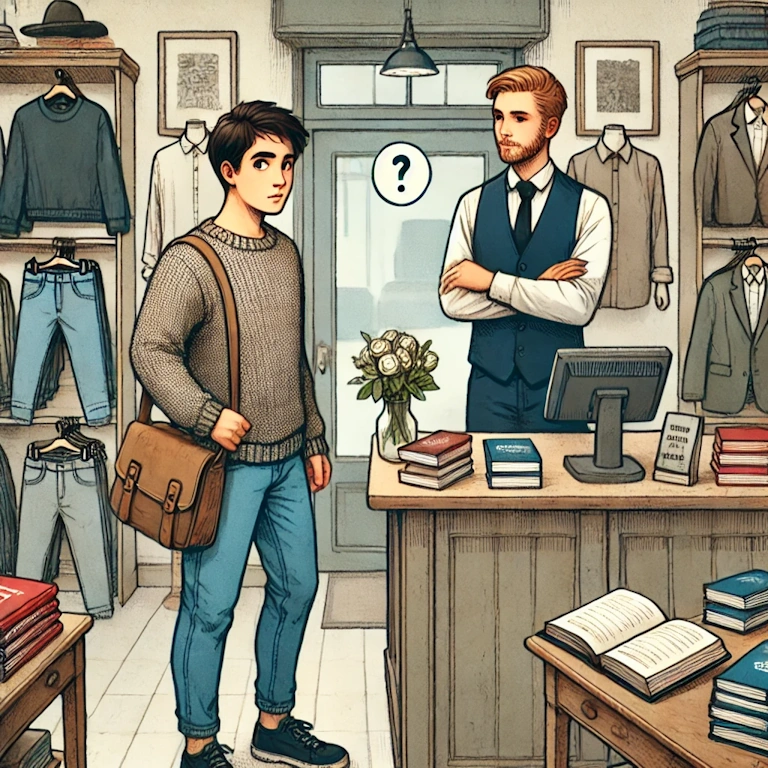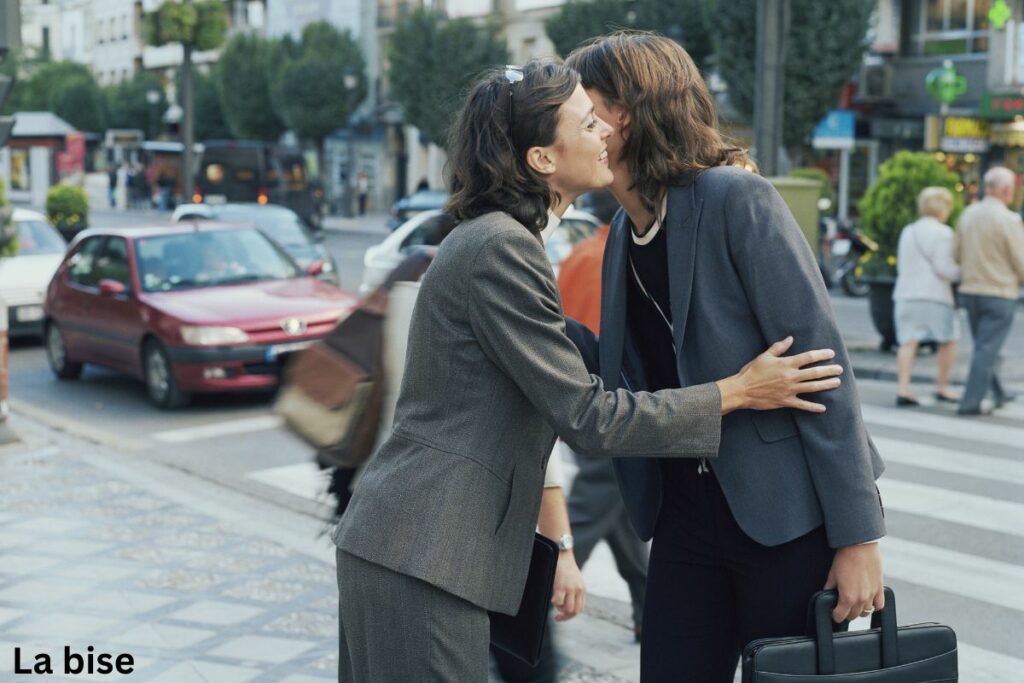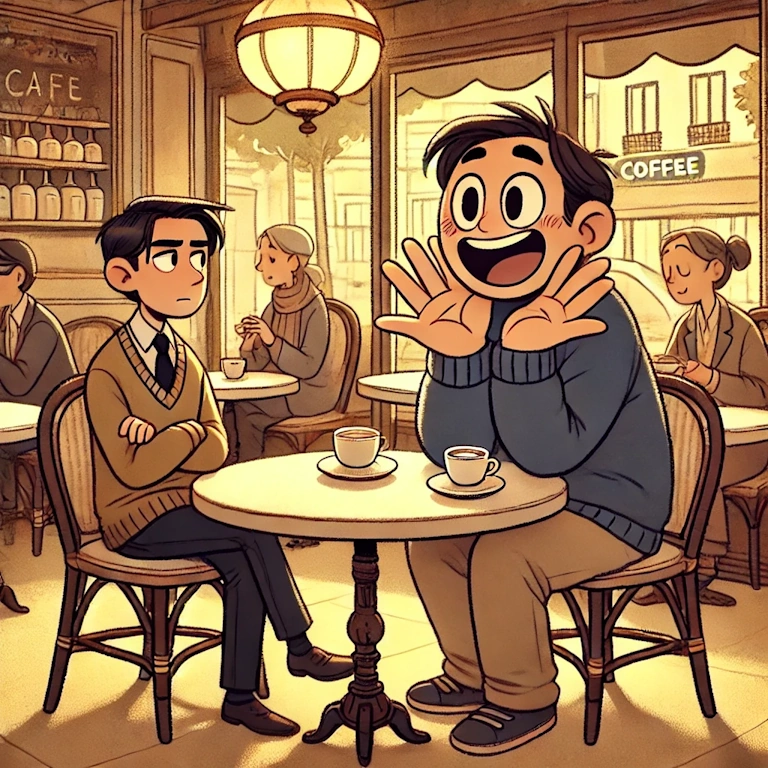10 French Cultural Faux Pas To Avoid
The French have a handy phrase for behavior that is frowned upon: “ça ne se fait pas!” (literally “that’s not done.”)
Planning a trip to France or just looking to blend in with your French friends? Knowing the local do’s and don’ts is key to making a good impression – or avoiding making a bad one.
In this article, I’ll guide you through 10 cultural faux pas to steer clear of, so you can be confident that your interactions avoid any awkward missteps.
1. Using the informal “tu” too soon

In French, it’s important to use the formal “vous” when addressing someone you’ve just met or don’t know well. Switching to “tu” without mutual agreement often comes across overly familiar and disrespectful.
For instance, if you’re at a store or at the bank, using “tu” with the staff would come across as impolite. Some people might even feel offended as if you’re deliberately disrespecting them.
Note that while this rule is true for France, the vouvoiement (using “vous”) isn’t as common in French speaking Africa, Asia, or Québec, where the culture tends to be more informal and relaxed.
2. Being too direct or blunt
French communication tends to be more indirect than in Anglo-Saxon cultures. Being too direct often come off as rude.
Here are a few examples:
| Instead of saying… | You might say… |
|---|---|
| Cette robe ne vous va pas très bien (This dress doesn’t look very good on you) | Ce n’est pas celle qui te va le mieux. (It’s not the one that suits you best) |
| Il ne danse pas bien (He doesn’t dance well) | Il a encore des progrès à faire (He still has some progress to make) |
| C’est trop sucré (It’s too sweet) | Il y a un peu trop de sucre pour moi… (There’s a little bit too much sugar for me) Je ne suis pas très sucre… (I’m not very keen on sugar) |
3. Not greeting properly

Always say “bonjour” (during the day) or “bonsoir” (in the evening) when entering a shop or starting a conversation. Failing to do so is considered impolite.
For example, you walk into a small bakery in France. Instead of greeting the shopkeeper with a singing “Bonjour” or “Bonsoir” (depending on the time of day), you walk in, look around, and immediately ask, “How much is the baguette?”
This direct approach will typically come off as impolite and abrupt.
4. Skipping the cheek kiss

When you meet someone in France whom you’ve been introduced to or spent some time with before, it’s customary to greet them with la bise – the famous French cheek kiss.
Offering a handshake instead can come across as unusual or excessively distant, especially when one of the two is a woman.
5. Talking loudly in public places

The French generally speak in moderate tones in public. Speaking loudly, such as in restaurants or on public transport, can be seen as disruptive.
6. Cutting salad with a knife

In France, salad leaves are typically folded onto the fork, not cut with a knife.
Cutting salad with a knife is viewed as a lack of table manners because it can ruin the look of the dish and suggests the leaves are too tough, which might come across as insulting for the chef.
Folding the salad onto your fork is the polite way to eat it, showing respect for the meal’s presentation and quality.
7. Discussing money openly

In France, talking about money, like discussing salaries or personal finances, is considered private and a bit rude to bring up in conversation, especially at social gatherings.
People prefer to keep these topics to themselves. Never ask a French person how much they make. If you do, most will reply: “Désolé mais c’est personnel…” (sorry that’s personal)
Likewise, people are often reluctant to mention the price of things (unless they are close friends or family), e.g. how much they paid for something.
You may also notice that French TV shows or news reports often blur the prices.
8. Starting to eat before everyone has been served

In France, it’s polite to wait until everyone at the table has their food before you start eating. Starting to eat before others have their food can come across as impatient or rude.
It’s particularly important to wait for the hostess, the “maîtresse de maison,” to start eating before anyone else begins. It’s a sign of good manners to follow her lead, and shows respect for her role in preparing the meal and hosting the gathering.
9. Asking personal questions too early
It’s generally considered impolite to ask someone personal questions too soon after meeting them.
Questions about things like age or family life can make people uncomfortable if they don’t know you well yet.
E.g. you’ve just met someone at a gathering, and instead of discussing general topics, you ask: “Vous êtes marié ?” (are you married?)
In France, this would be considered too personal for an initial conversation with someone you’ve just met.
10. Using expansive gestures

Overly expressive body language can be viewed as exuberant and clashes with the French preference for subtlety. Using large, expressive gestures while talking can be seen as excessive or lacking in self-control.
French culture generally appreciates subtlety and restraint in body language. It’s considered more polite to keep gestures modest and understated during conversations.
This is one of the reasons French people often joke about the Italians or the Spanish, who use bigger and more dramatic gestures, their cultures being more “Latin”.
French people see these expressive styles as too much and find them funny.
